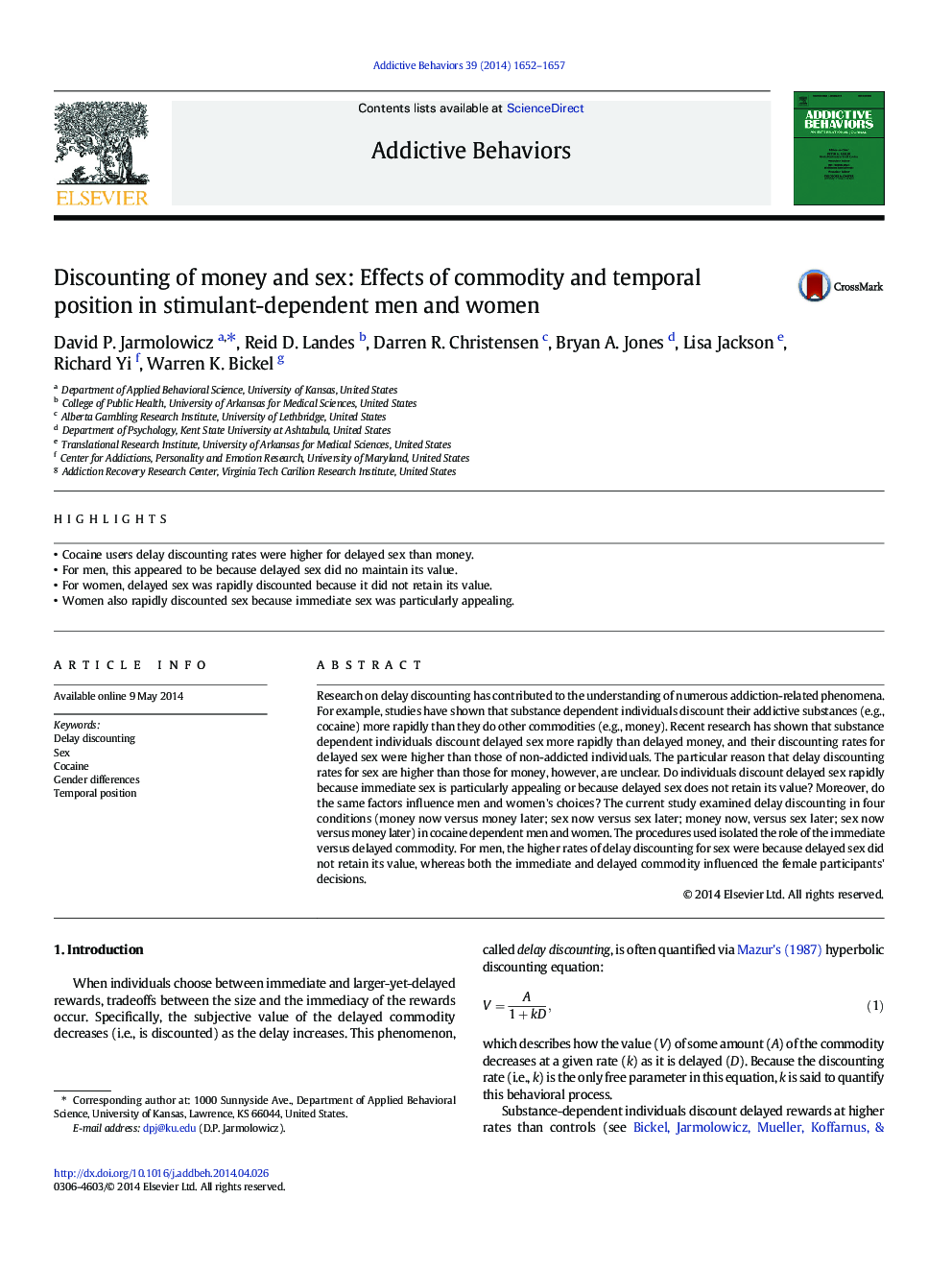| Article ID | Journal | Published Year | Pages | File Type |
|---|---|---|---|---|
| 898817 | Addictive Behaviors | 2014 | 6 Pages |
•Cocaine users delay discounting rates were higher for delayed sex than money.•For men, this appeared to be because delayed sex did no maintain its value.•For women, delayed sex was rapidly discounted because it did not retain its value.•Women also rapidly discounted sex because immediate sex was particularly appealing.
Research on delay discounting has contributed to the understanding of numerous addiction-related phenomena. For example, studies have shown that substance dependent individuals discount their addictive substances (e.g., cocaine) more rapidly than they do other commodities (e.g., money). Recent research has shown that substance dependent individuals discount delayed sex more rapidly than delayed money, and their discounting rates for delayed sex were higher than those of non-addicted individuals. The particular reason that delay discounting rates for sex are higher than those for money, however, are unclear. Do individuals discount delayed sex rapidly because immediate sex is particularly appealing or because delayed sex does not retain its value? Moreover, do the same factors influence men and women's choices? The current study examined delay discounting in four conditions (money now versus money later; sex now versus sex later; money now, versus sex later; sex now versus money later) in cocaine dependent men and women. The procedures used isolated the role of the immediate versus delayed commodity. For men, the higher rates of delay discounting for sex were because delayed sex did not retain its value, whereas both the immediate and delayed commodity influenced the female participants' decisions.
